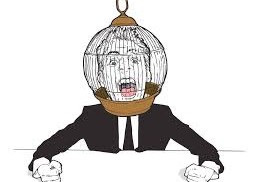Neurotic Disorders Caused by Depression


What are Neurotic Disorders and How Are They Linked to Depression?
Neurotic disorders are mental health problems that often develop when a person experiences long-term emotional stress. Depression is one of the leading causes that triggers these disorders. People suffering from depression may experience constant worry, nervousness, and feelings of hopelessness. Over time, these emotions can transform into neurotic conditions that affect daily life.
- Emotional instability may appear after weeks or months of untreated depression.
- Nervous habits such as overthinking, restlessness, or constant doubt may become routine.
- Sleep problems often start because of a disturbed emotional state.
- Physical discomfort like headaches or stomach issues can also follow.
When depression is not addressed, it can push the mind into a cycle of repetitive negative thoughts. This makes the person vulnerable to neurosis, which can take the form of anxiety, fear, or compulsive behaviors.
Many individuals may not realize that their neurotic problems are rooted in depression, which makes early recognition important. This means that depression and neurotic disorders are strongly connected, and caring for emotional health can prevent one from turning into the other.
How Do Symptoms of Depression Lead to Neurotic Disorders?
The signs of depression are more than just sadness. They slowly change the way a person thinks, feels, and reacts. These changes can turn into symptoms of neurotic disorders if left unchecked.
- Constant sadness and loss of interest affect the way the brain handles stress.
- Irritability and low patience can increase the chances of nervous breakdowns.
- Concentration problems may cause confusion and self-doubt.
- Feeling worthless can create unnecessary fears and phobias.
The repeated impact of these symptoms makes the nervous system fragile. A simple daily challenge may feel overwhelming, and this can grow into neurotic behavior. For example, a person might avoid social contact or develop obsessive habits to cope with their emotions.
By noticing how depression symptoms influence neurotic tendencies, people can take steps to reduce their risks early on.
The main point is that untreated depression has the power to transform emotions into unhealthy behaviors that resemble neurosis.
Why Do Neurotic Disorders Affect Everyday Life So Strongly?
Neurotic disorders caused by depression often change the way people live and work. Even small responsibilities may feel impossible.
- Work performance may fall due to fatigue and mental stress.
- Relationships with family and friends may suffer because of mood swings.
- Fear and worry may prevent people from enjoying normal activities.
- Lack of sleep can make everything feel harder and more confusing.
These daily struggles can make people feel trapped, and the lack of control over their emotions may increase depression further. In many cases, this cycle becomes difficult to break without help.
Daily life becomes restricted, and the individual may feel like they are constantly fighting themselves.
The key idea here is that neurotic disorders caused by depression create a loop of stress, where life feels heavier each day.
Can Neurotic Disorders Caused by Depression Be Prevented?
Prevention is possible when depression is identified early. Taking care of mental health before symptoms grow into neurosis is essential.
- Talking to a therapist or counselor helps address deep emotional pain.
- Building healthy daily routines can improve stability and mood.
- Social support from friends and family can reduce feelings of isolation.
- Exercise and balanced nutrition help strengthen both body and mind.
Although prevention requires effort, it is easier than treating fully developed neurotic disorders. Many people benefit from regular self-care and professional guidance to keep emotional balance.
The lesson is that prevention begins with small, consistent steps toward better mental health and emotional strength.
What Role Does Therapy Play in Treating Neurotic Disorders?
Therapy is one of the most important tools for managing neurotic conditions linked to depression. It helps patients understand their emotions and replace harmful thought patterns with healthier ones.
- Cognitive therapy works on recognizing and changing negative thinking.
- Supportive counseling allows people to express their fears safely.
- Relaxation methods like breathing exercises lower nervous tension.
- Group therapy can reduce loneliness and show people they are not alone.
Therapy teaches skills for long-term emotional control. This helps patients deal with triggers and lower the chance of relapse. It also provides a safe place for people to rebuild self-confidence and daily function.
Therapy works as a guiding hand, offering both understanding and practical solutions for neurotic disorders.
How Can Medication Support Treatment?
In some cases, therapy alone is not enough. When depression is strong and neurotic symptoms interfere with daily life, medication can be introduced as part of treatment.
- Medicines can calm nervous feelings and improve mood balance.
- They may help restore normal sleep patterns.
- Patients often experience less anxiety and irritability.
- Medications support the brain’s ability to handle stress.
Doctors sometimes choose specific medicines that are suitable for both depression and nervous disorders. One of these options is Sinequan (Doxepin), which has been widely used to reduce emotional tension and improve overall mental stability.
The idea is that medicine, when guided by a professional, can strengthen recovery and help people regain their sense of control.
Why is Sinequan (Doxepin) Helpful in These Cases?
Sinequan (Doxepin) plays a role in treatment plans because it is known to help with both depression and symptoms related to neurotic conditions. This dual benefit makes it valuable in cases where therapy by itself does not bring enough relief.
- It can ease nervous thoughts that come from depression.
- Patients often find their sleep improves after using it.
- It brings balance to mood, lowering irritability.
- It supports better focus, making daily life easier to handle.
Doctors may suggest Sinequan (Doxepin) together with therapy to create a more complete treatment path. By controlling strong symptoms, patients are able to benefit more from counseling and other supportive methods.
This shows how medicine, when used wisely, can give patients a stronger foundation for recovery.
Final Thoughts on Neurotic Disorders Caused by Depression
Neurotic disorders caused by depression are not just about emotions but about how deeply the mind and body are connected. Depression makes people vulnerable to nervous behaviors, and these in turn can make daily life more difficult. Prevention, therapy, and when needed, medicine like Sinequan (Doxepin), play an important role in restoring emotional balance. With the right support, individuals can regain stability, confidence, and peace of mind.
Drug Description Sources: U.S. National Library of Medicine, Drugs.com, WebMD, Mayo Clinic, RxList.
Reviewed and Referenced By:
- Dr. Alan Carter, PharmD
Clinical pharmacist specializing in chronic pain management and antiepileptic drugs. Frequently cited on Drugs.com for reviewing therapeutic guidance on Pregabalin’s pharmacokinetics, dosage, and safety profile.
- Dr. Emily Johnson, MD
Psychiatrist with expertise in mood and anxiety disorders. Known for reviewing clinical practices related to depression therapies on WebMD and Mayo Clinic.
- Dr. Michael Lee, PharmD
Clinical researcher in psychopharmacology, contributing to RxList and the U.S. National Library of Medicine for drug safety reviews and treatment guidelines.
Article Post: Editorial Team of RXShop.md
(Updated at Aug 16 / 2025)

